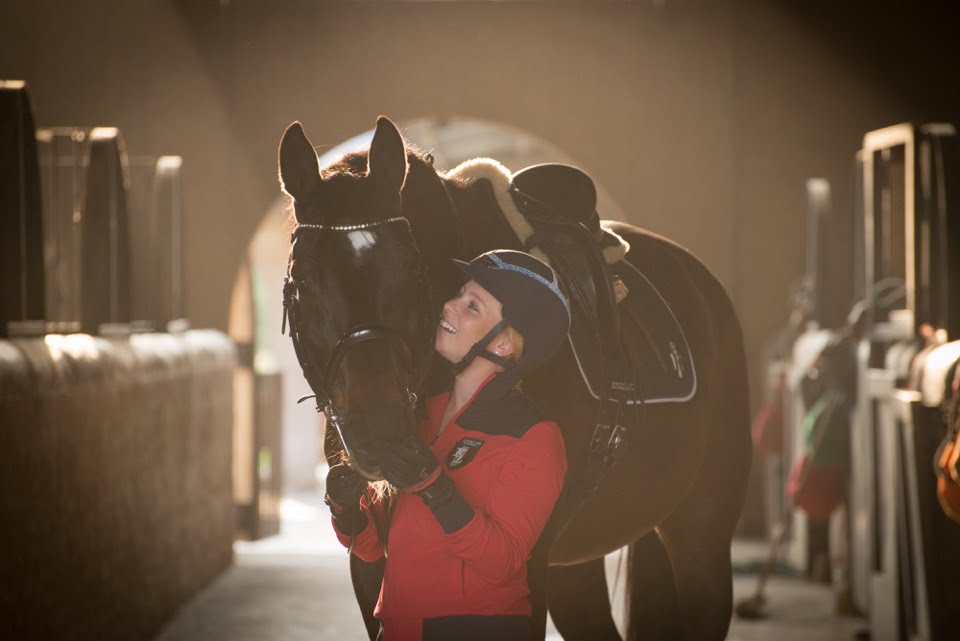The voice aid
Of all the ‘auxiliary’ aids the voice is the most commonly used. Many trainers would in fact argue that the voice is not an auxiliary aid but one of the core aids available to trainers. Many believe that we in reality have four basic, natural aids – the legs, the hands, the seat and the voice. They would argue therefore that as opposed to being an additional tool, the voice is an integral part of training.
As this suggests, however, there are plenty of people who overlook or forget the role of the voice in training. Many people speak to their horses from the day they are born, in the field, in the stable, during a hack and when they are training. Many of us even chat to our horses during competition, although not during competitive dressage tests where audible use of voice is not permitted! However, lots of people are self-conscious about the use of the voice and spend a lot of time around their horse without making a sound. There is of course a happy medium – no horse can understand continuous chatter but equally, not using the voice means that the only aids available are in fact physical aids, which are by definition ‘heavier’ than voice aids. Voice aids can help you to get the most out of your horse, but if your voice becomes a continuous background noise for your horse it is then no longer an aid.
Horses are very sensitive to tone of voice and they soon learn to understand a human’s emotional state by the tone of their voice. They already instinctively know the difference between a friendly voice and an unkind one. When used correctly the voice can give a horse huge confidence and reassurance. They further can learn to understand specific commands such as ‘walk’, ‘trot’ and ‘canter’. Many trainers would agree that the use of the voice is absolutely essential, especially when training a young horse.
Just as with other aids the use of the voice must therefore be considered, and as each horse will respond differently to the aid, it may be that in some instances more voice will be required than in others. We just need to remember that just as a horse can become ‘dead to the leg’ if the leg is used continuously, the horse can become ‘dead to the voice’; and just as if no leg is used, the horse will not receive any of the benefits of well-used leg aids, if no voice is used your horse will miss out on this refining training aid.

